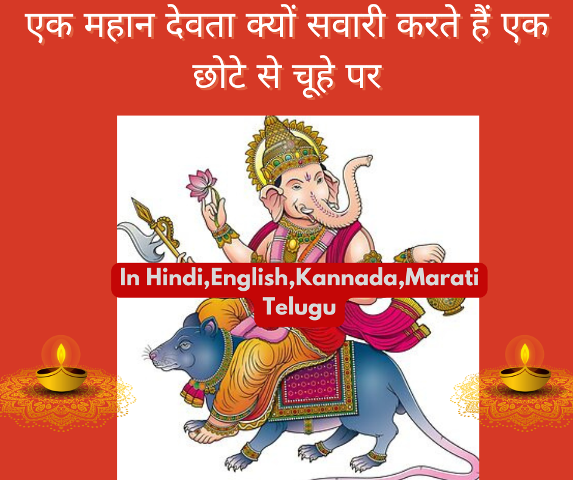Pitru Paksha Amavasya, also known as Sarva Pitru Amavasya, is a deeply spiritual day in the Hindu calendar. It marks the culmination of Pitru Paksha, a 15-day lunar period in the Hindu month of Bhadrapada, dedicated to remembering and honoring our ancestors. This period is significant for performing Shraddha rituals, which ensure peace and blessings for the departed souls. Falling on the new moon day, Pitru Paksha Amavasya is a time when the boundaries between the living and the departed are believed to be thin, offering a unique opportunity to pay homage to all deceased ancestors.
Understanding Pitru Paksha Amavasya
During Pitru Paksha, descendants offer food, water, and prayers to their ancestors, seeking to satisfy their souls and ensure their peace in the afterlife. This period allows families to express gratitude for the lives and contributions of their forefathers. However, for those unable to perform Shraddha on the specific death anniversary of their ancestors (Tithi), Sarva Pitru Amavasya provides a special day to honor all deceased souls.
On this day, even those who don’t know their ancestors’ exact death date can still perform rituals, as this Amavasya is open to all. It acts as a comprehensive day to ensure that no ancestor is left unacknowledged.
Rituals and Practices
Families gather to perform rituals like Shraddha, Tarpana, and Pind Daan. These rituals often involve offering cooked food made from black sesame seeds, rice, and fruits, and performing rites by a water body or sacred ground. The prayers and offerings are believed to provide nourishment and comfort to the ancestors’ souls.
In addition to offering food, devotees engage in acts of charity. Donating to the poor, giving clothes, or offering food to Brahmins is considered highly auspicious on Pitru Paksha Amavasya. These acts of selflessness reflect the compassionate nature of the ancestors and allow descendants to accumulate spiritual merit.
The Importance of Cows During Pitru Paksha
An important addition to the rituals during Pitru Paksha Amavasya is the worship of cows, which are considered sacred in Hinduism. Cows represent life, nourishment, and motherhood, making them symbols of selfless giving. Offering prayers to cows or feeding them during Pitru Paksha is believed to be a highly meritorious act. Many families feed cows grass, bananas, or jaggery, symbolizing their devotion and care.

The significance of cow worship lies in the belief that serving cows helps elevate the spiritual standing of the departed souls. Hindus see cows as divine beings who act as a medium between the earthly and spiritual worlds, helping connect us with our ancestors. By feeding and worshipping cows, families invoke blessings not only for their well-being but also for the peace of their forefathers’ souls.
Donating to Gaushalas (Cow Shelters)
For those unable to personally feed cows, donating to a Gaushala (cow shelter) is considered equally virtuous. Many shelters, such as Gopal Krishna Gaushala, offer opportunities to support cow care through donations. These donations ensure that cows are well-fed and cared for, extending the benefits of your Shraddha rituals. Donating to a Gaushala during Pitru Paksha Amavasya is a spiritual act that brings both material and spiritual rewards.
Moreover, such donations also help the donor accumulate good karma, ensuring prosperity and peace in their current life. In addition, contributions to Gaushalas qualify for tax exemptions under Section 80G of the Income Tax Act, adding a practical benefit to this sacred act.
Transitioning from Ancestors to Cows: A Deeper Spiritual Connection
The worship of cows during Pitru Paksha Amavasya ties deeply into the larger spiritual worldview of Hinduism. Just as the rituals for ancestors involve nourishing their souls, serving cows embodies the same values of compassion and care. Cows, often referred to as Gau Mata (Mother Cow), are believed to possess divine energy. By feeding and worshipping cows, families strengthen their spiritual ties to both the earth and the heavens, ensuring the continuity of blessings.
The connection between ancestors and cows is symbolic of the Hindu belief in a balanced life that honors all forms of existence. Just as our ancestors laid the foundation for our present lives, cows provide sustenance, nurturing the land and its people. Worshipping cows during Pitru Paksha emphasizes this interconnectedness, reminding us of our duty to respect and protect all life forms.
Conclusion: A Holistic Approach to Pitru Paksha Amavasya
Pitru Paksha Amavasya is more than a day of rituals; it is a sacred time to connect with our past, express gratitude, and seek blessings for the future. By performing Shraddha, Tarpana, and other ceremonies, we ensure peace for our ancestors’ souls. Moreover, the inclusion of cow worship enhances the spiritual depth of this day, as it reflects the values of nurturing and selfless giving.
Whether you perform the rituals personally or support a Gaushala through donations, the spirit of devotion and charity remains at the heart of Pitru Paksha Amavasya. The divine blessings of our ancestors and the sacred cows guide us toward prosperity, peace, and spiritual fulfillment.
May the love and blessings of your ancestors continue to protect and nourish you, and may the sacred cows bring abundance into your life during this Pitru Paksha Amavasya.
For those looking to donate to a Gaushala during Pitru Paksha, Gopal Krishna Gaushala is a wonderful option, supporting the care of over 75 cows and calves. Donations can be made online, and tax exemptions under Section 80G are available.
FAQs on Pitru Paksha Amavasya and Cow Worship
1. What is Pitru Paksha Amavasya?
Pitru Paksha Amavasya, or Sarva Pitru Amavasya, is the final day of the Pitru Paksha period, a 15-day lunar period dedicated to honoring deceased ancestors. On this day, families perform rituals to ensure the peace of their ancestors’ souls and seek their blessings.
2. What is the significance of cow worship during Pitru Paksha Amavasya?
In Hindu culture, cows hold a sacred place and are considered symbols of compassion and selflessness. Offering prayers and feeding cows during Pitru Paksha, especially on Amavasya, is believed to amplify the blessings of ancestors. It is said that taking care of cows during this period brings spiritual merit (punya) and ensures peace for departed souls.
3. How can I include cows in Pitru Paksha rituals?
During Pitru Paksha, many families make offerings to cows as part of their Shraddha rituals. Common practices include Feeding the cows fresh grass, fruits, and sweets. Offering water to cows along with a prayer for the well-being of ancestors and donating to cow shelters (gaushalas) to support the care and upkeep of cows.
4. What type of food should be given to cows during Pitru Paksha?
Feeding cows is considered a holy act, especially during Pitru Paksha. Cows can be fed grass, jaggery, bananas, and other natural foods. Some people offer cooked food like rice or chapatis as part of their Shraddha rituals.
5. Can donating to a cow shelter (Gaushala) help my ancestors during Pitru Paksha?
Yes, donating to a Gaushala is seen as an act of compassion and devotion. It is believed that supporting the care of cows during Pitru Paksha brings spiritual merit to the donor and peace to the ancestors’ souls. Many people choose to donate to Gaushalas on Amavasya as a form of offering to both cows and ancestors.
6. How does cow worship benefit my family during Pitru Paksha?
Cows are revered as symbols of nourishment and selfless giving. Worshipping cows and caring for them during Pitru Paksha is said to attract the blessings of ancestors, ensuring family well-being, prosperity, and protection from negative influences.
7. What is the spiritual connection between cows and ancestors?
According to Hindu beliefs, cows represent maternal and nurturing qualities, and serving them is akin to serving the divine. By caring for cows during Pitru Paksha, families believe that they are honoring the nurturing spirit of their ancestors. The cow, as a sacred animal, serves as a bridge between the earthly and spiritual realms, helping ancestors find peace and salvation.
8. Is there a special significance to donating cows on Pitru Paksha Amavasya?
Yes, donating a cow or contributing to its upkeep in a Gaushala during Pitru Paksha is considered highly meritorious. This act, known as Go-Daan, is believed to free ancestors from any karmic debts and ensure their smooth passage into the afterlife, bringing peace and blessings to their descendants.
9. What if I can’t personally feed cows? Can I still contribute to their care?
If you are unable to personally feed or serve cows during Pitru Paksha, you can still contribute by donating to a Gaushala or cow shelter. Many Gaushalas, such as Gopal Krishna Gaushala, offer options to support cow care through donations, ensuring that cows are fed and cared for in your name.
10. How do I donate to a Gaushala for Pitru Paksha rituals?
You can visit a local Gaushala or donate online. For example, Gopal Krishna Gaushala accepts donations for cow care, and contributors can do so with the assurance of receiving blessings from both the cows and their ancestors. Such donations also qualify for tax exemptions under Section 80G of the Income Tax Act, adding further value to this sacred act.



